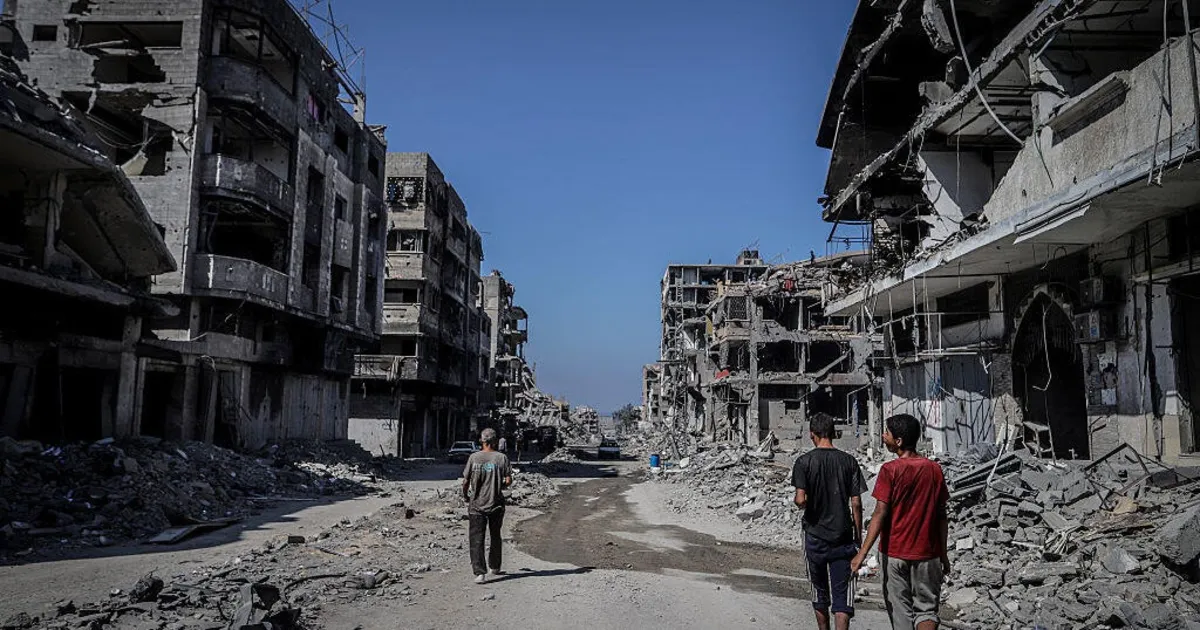
On Sunday, the Israeli military launched a series of airstrikes and artillery attacks on multiple targets in southern Gaza, following accusations that Hamas had opened fire on Israeli soldiers. This incident marks a significant test of the fragile ceasefire established earlier this month, facilitated by U.S. mediation efforts.
According to an official from the Israeli military, Hamas was involved in two separate attacks which included a rocket-propelled grenade aimed at Israeli soldiers and sniper fire. Both incidents reportedly took place in an area under Israeli control, east of the yellow line, which the official described as a clear violation of the ceasefire agreement.
In response to these provocations, Israeli Prime Minister Benjamin Netanyahu convened discussions with his security team. His office released a statement indicating that he had directed the military to take decisive action against what he termed "terrorist targets." Notably, Netanyahu refrained from issuing any threats regarding a return to war at this time.
In a counter-response, Hamas denied any involvement in the alleged clashes in Rafah, southern Gaza. The Ezzedine Al-Qassam Brigades, Hamas's military wing, stated their commitment to uphold the ceasefire across the Gaza Strip, asserting, "We have no knowledge of any incidents or clashes taking place in the Rafah area, as these are red zones under the occupation's control."
The military actions came as Israel confirmed the identification of the remains of two hostages who were recently released by Hamas. Furthermore, Hamas announced that discussions for the second phase of ceasefire negotiations were underway. Meanwhile, Israel has announced plans to keep the Rafah border crossing between Gaza and Egypt closed until further notice, contingent upon Hamas's compliance with the ceasefire agreement regarding the return of all deceased hostages.
As per Israeli media reports, the remains of 16 hostages, including two foreign nationals, are still unaccounted for in Gaza. The U.S. State Department has also expressed concerns, indicating it has received credible reports suggesting that Hamas may be plotting an attack on Palestinian civilians in the Gaza Strip. The State Department emphasized that such actions would represent a direct violation of the ceasefire and could jeopardize the progress made through diplomatic efforts.
Hamas has refuted the allegations of planning an attack, labeling them as false accusations. The group further accused Israel of providing support to armed factions operating in Israeli-controlled territories and called upon the U.S. administration to exert pressure on Israel to cease its support for these groups.
Last week, Israel and Gaza implemented the initial phase of President Trump's 20-point peace plan, which included a ceasefire following the withdrawal of Israeli troops to a predetermined line. Since then, Hamas has released 20 living hostages and the remains of 12 others. In turn, Israel has released approximately 2,000 Palestinian prisoners and detainees, including 250 individuals serving life sentences and about 1,700 others detained without charges since the terrorist attack on October 7, 2023.
Additionally, Israel has returned 150 bodies of Palestinians to Gaza, with 15 bodies being handed over on Sunday, according to the Gaza Health Ministry. However, Israel has not disclosed the identities of these bodies or the circumstances surrounding their deaths.
The forthcoming stages of the ceasefire negotiations are expected to address critical issues such as the disarmament of Hamas, further Israeli withdrawals from occupied areas in Gaza, and the future governance of the war-torn territory. This situation remains fluid, and updates will follow as developments unfold.
This is breaking news. Please check back for further updates.